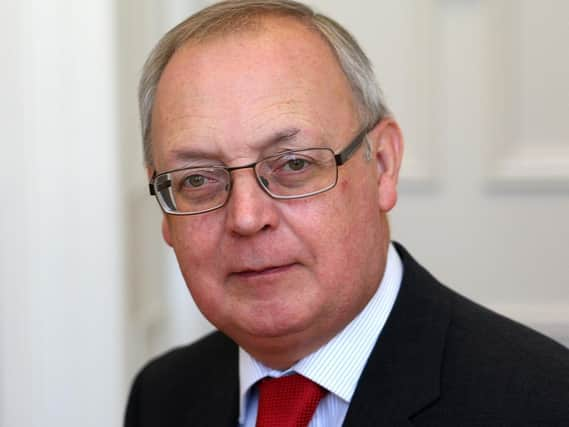Funding plan for Calderdale's social care falls 'a long way short'


This week the Goverment announced a 1.25 per cent rise in National Insurance with the extra payment beconing a separate tax on earned income, which from April 2023 will show up on payslips as the Health and Social Care Levy.
Prime Minister Boris Johnson said the changes are expected to raise £12 billion a year but the Government has said that for three years all the money will go towards easing the NHS backlog before more of it is moved into social care.
Advertisement
Hide AdAdvertisement
Hide AdWhile welcoming the Government raising the issue of social care, Leader of Calderdale Council, Coun Tim Swift (Lab, Town) and Cabinet member for Adult Services and Wellbeing, Coun Josh Fenton-Glynn (Lab, Calder) say proposals fall short with not enough of the money raised going to social care.
In a joint statement they said: “Whilst it is welcome that the Government is talking about social care, their current proposals fall a long way short of what is needed to address the real problems.”
As well as the cost of care packages, they said there is nothing to improve the low pay of care workers, an issue already having an impact, they said.
“Most of the new money they are talking about will go to the NHS, and much of the rest is about who pays the bills.
Advertisement
Hide AdAdvertisement
Hide Ad“In reality councils will still have funding pressures driven by underfunded social care.
“The current proposals do little or nothing to improve social care for people with long term disability, nothing about the low pay of care workers which in turns is leading to high vacancy rates, and nothing to make sure that more people who need help are able to receive it.
“This is a missed opportunity. Government is failing our parents and Calderdale’s most vulnerable citizens with a half baked plan.”
Among measures the Government has announced include proposals that mean people will no longer pay more than £86,000 in care costs – that means for actual care, rather than accommodation – over their lifetime, from October 2023.
Advertisement
Hide AdAdvertisement
Hide AdOnce people have reached this cap, ongoing costs for personal care will be paid for by local authorities, the Government has said, with those with between £20,000 and £100,000 in assets getting means-tested help towards costs from their local council.
Those who own less than £20,000 will not have to pay towards care costs from their assets at all, but might have to contribute from their income, says the Government.
The cost of social care, duties which are statutory, has become a major issue for councils in England, in Calderdale’s case all-ages care, which also includes children and young people, taking up in excess of two thirds of its budget.